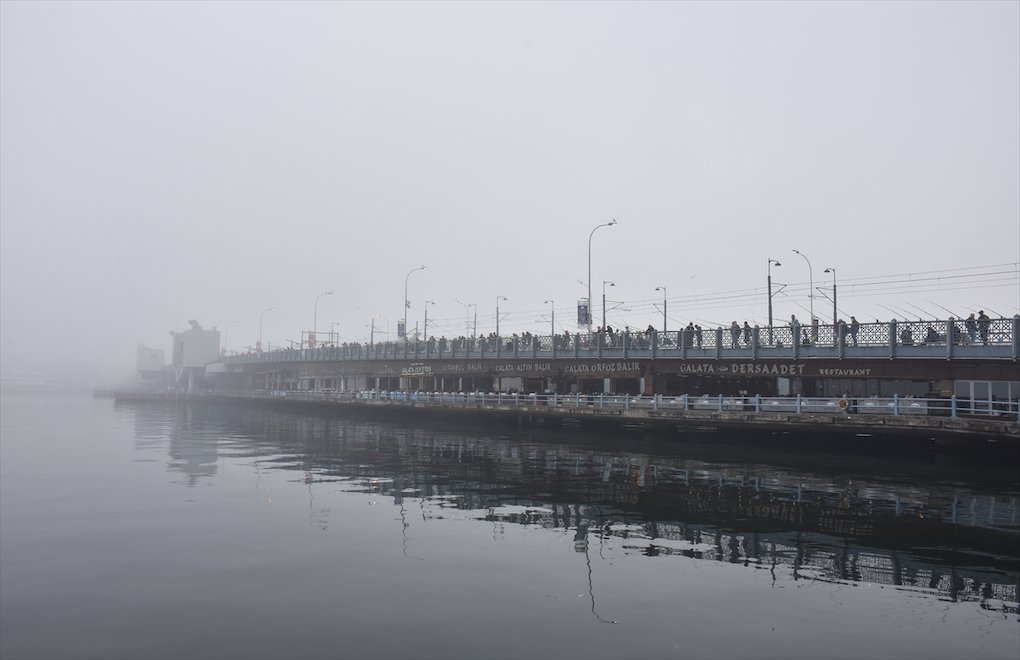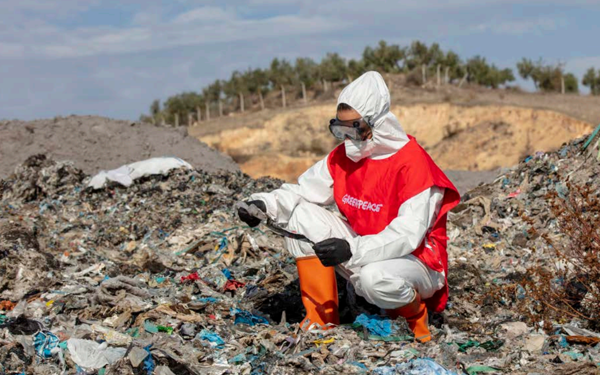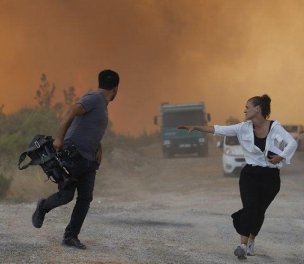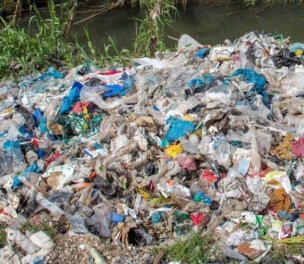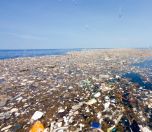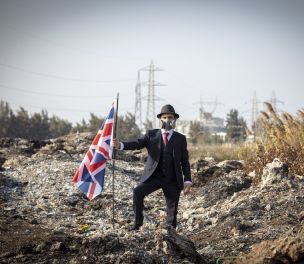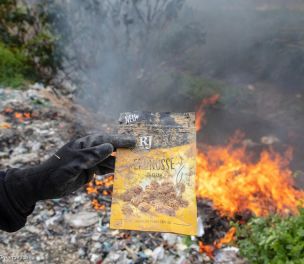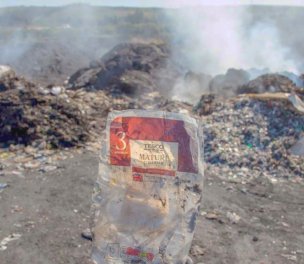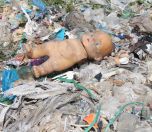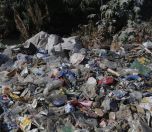Turkey's plastic waste imports: 'Chemicals are mixed into the food chain'

Photo: Greenpeace
Click to read the article in Turkish
We have spoken with Greenpeace Mediterranean Biodiversity Project Leader Nihan Temiz-Ataş about their "Waste Games" report about illegal plastic waste dumping sites in Turkey's southern province of Adana.
As part of the study, Greenpeace analyzed samples it collected from five sites and compared the results to uncontaminated soil samples.
Four carcinogenic pollutants that can affect babies in the womb and are strong enough to be transmitted from generation to generation were detected in the contaminated soil.
Turkey and England should take steps for the future, but the damage is done and those chemicals have become a part of the food chain, said Temiz.
"There is a perception management of the industry that plastic is recycled, all of its harm is eliminated and it is safe. However, there is no way to destroy the chemicals released during both production and disposal of plastic.
"For this reason, it has currently affected the soil in Adana, is mixed in the food chain and will be transmitted from generation to generation. I must underline that there is no way back. But it is, of course, important to stop it and take precautions."
Poisonous chemicals in all locations
The residues and effects of plastic never disappear from nature, no matter how much cleaning is going on, Temiz-Ataş noted.
"There are garbage dumping sites right next to fields, irrigation canals, citrus orchards and peanut and corn fields. Animal husbandry and agriculture are carried out in the region.
"We wanted to see whether [chemicals] become part of our food chain and what chemicals we would encounter. We investigated the presence of 69 specifically chosen chemicals that have the highest toxic effect by taking [samples of] soil, ash, water and plastics brought from five different locations. We detected poisonous chemicals released from the combustion of plastic at all locations.
"All of these chemicals are permanent. They dissolve slowly into the environment and accumulate in bodies. Because they are not removed from the body, they can be transmitted from generation to generation.
"They also inflict irreversible damage on nature. For this reason, this waste colonialism must end immediately and Europe should recover its own waste from now on."
"Many people are affected"
The lack of information regarding the health effects of plastic wastes in the Greenpeace report is the fact that the Ministry of Health does not transparently disclose data.
About their observations and interviews, Temiz-Ataş said, "We encountered many people who do agriculture and animal husbandry and were affected by this situation very much.
"We saw sheep and goats poisoned because of chemical pollution and filmed them. We also received an opinion that the premature birth rate increased very much at Çukurova University Newborn Unit.
"The Yüreğir, İncirlik region is the one we can say is the most poisonous and toxic. There are peanut and corn fields. They appear on people's tables and are used as feed for animals. For this reason, those involved in animal husbandry are included in this process both directly and indirectly.
"Therefore, while there is no official correlation, it is possible to observe the effects of chemicals that are released by the combustion of plastic. It is a fact that it enters our food chain. All references in the literature show that such a big toxicity will affect everything irreversibly."
The Waste Games report
Samples of soil, ash, water and sediment collected from illegal plastic dump sites were analyzed by both Greenpeace Research Laboratories and independent laboratories.
Accordingly, the amount of dioxin and furan found in the samples from dumpsites was 400,000 times higher than in uncontaminated soil and that was the highest ever toxicity level found in soil in Turkey.
Dioxin-furans are carcinogenic and they may be toxic to unborn children, trigger tumors and affect hormone and immune systems, said Greenpeace.
Polychlorinated biphenyls (PCBs), 18 different types of metals and metalloids and Polycyclic aromatic hydrocarbons (PAHs) were other pollutants found in soil, according to the report.
The five dumpsites it analyzed are among Adana's fertile agricultural, livestock and irrigation lands, Greenpeace noted. The heavy metals, dioxins and furan and permanent organic pollutants that are produced as a result of illegal burning of plastic waste can cause cancer by mixing into soil, water, air and food chain, it said.
Turkey is the largest importer of Europe's plastic wasteTurkey's plastic waste imports rapidly increased after early 2018 when China imposed bans on waste imports. In 2019 and 2020, Turkey was the largest importer of Europe's plastic waste. According to Eurostat and UK Office for National Statistics figures compiled by Greenpeace; Turkey imported 659,960 tons of plastic waste from the EU countries and the UK in 2020, up by 13 percent from the previous year. Some 241 truckloads of plastic waste came to Turkey from those countries every day. • In 2019, Turkey imported 582,296 tons of plastic waste from the EU countries and the UK. • Twenty-eight percent of Europe's plastic waste exports were to Turkey in 2020. • Turkey's plastic waste imports increased by 196 times between 2004 and 2020. • In 2020, the top five countries that sent the most plastic waste to Turkey were the UK (209,642 tons), Belgium (137,071 tons), Germany (136,083 tons), the Netherlands (49,496 tons) and Slovenia (24,884 tons). |
(TP/VK)
Exhibition of pets prohibited but sales continue: 'This cruelty must end all together'
.jpg)
Turkey's new electoral council rules may endanger election security, warns professor
.jpg)
Why does a plane fail to take off from 3rd Airport while it can do so from Atatürk Airport?
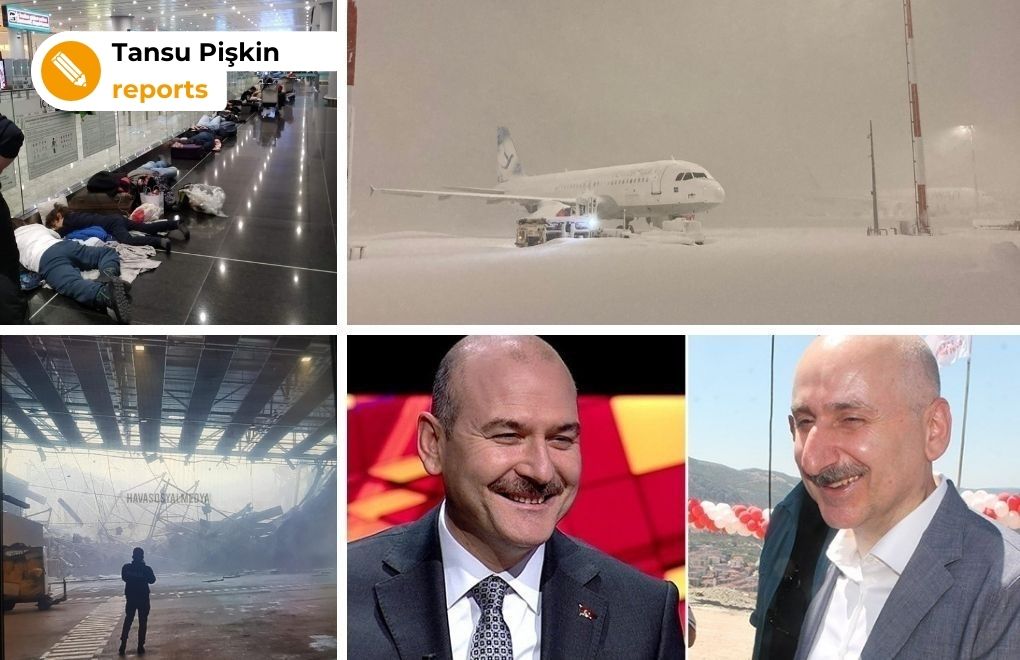
Q&A WITH PROF. TOLUNAY
Is the climate crisis the only reason for drought in Turkey?

ATLI FROM RIGHT TO CLEAN AIR PLATFORM
‘What we have in İstanbul and Ankara is not fog, but smog’
